-
Home
- ISO 27050 Certification
All Categories
- ISO 9001:2015
- IAF Register
- Organic certification
- ISO 14001:2015
- OHSAS 18001:2007
- ISO 27001:2013
- ISO 13485:2016
- ISO 50001-2011
- CE Marking
- ISO 15000 HACCP
- ISO 29990:2010
- ISO 22301-2012
- Lead Auditor Training
- ISO 29993:2017 Certification
- Other Services
- HSE MS
Quick Links
- About us
- CE Marking Certification
- Impartiality Statement
- Founder
- Quality Policy
- ISO Application Process
- Certified Client
- Accredited Certificate Need to be Converted
- History
Quick Links
- About us
- CE Marking Certification
- Impartiality Statement
- Founder
- Quality Policy
- ISO Application Process
- Certified Client
- Accredited Certificate Need to be Converted
- History
- CE Notified Body
- ISO 10002
- ISO 50001
- Low Voltage CE
- Responsible Care Management System
- IFS Food
- Global GAP
- Code of Integrity
- Use of Marks
- Key Elements of BCMS
- IAF Register of Accredited Certificate
- What are Key Documents required for Client as per ISO?
- IAF Register
Read More
ISO 27050 Certification
ISO 27050 Certification- Electronic Discovery (eDiscovery)
ISO 27050 Certification-Electronic Discovery (eDiscovery)
ISO/IEC 27050 provides comprehensive guidelines in the management of electronic discovery, an important process in legal and investigative domains where it identifies, preserves, collects, processes, and analyzes the ESI. This standard is necessary for organizations that have digital evidence or are responding to legal and regulatory requests that involve electronic data.
The reliance on digital communication and storage has been increasing. EDiscovery plays an important role in ensuring that electronic information is managed securely and efficiently while remaining compliant with legal and regulatory requirements. ISO 27050 helps organizations develop effective processes to mitigate risks, protect sensitive data, and ensure the admissibility and reliability of electronic evidence. Organizations can streamline operations, minimize legal exposure, and build trust with stakeholders by following this standard.
ISO 27050 looks at the complexities of a modern data ecosystem, with cloud storage, mobile devices, and cross-border data transfers. It gives organizations the resources to handle the challenges involved in managing large volumes of ESI in a manner that is both defensible and efficient. As a multi-part standard, ISO 27050 provides comprehensive guidance for each stage of the eDiscovery lifecycle.
Structure of the ISO 27050 Standard
ISO 27050 is organized into clauses that address the various stages and aspects of the eDiscovery process. Below is an overview of the standard’s structure:
Clause 1: Scope - Defines the applicability of the standard and its focus on managing the eDiscovery process in a secure and compliant manner. It outlines the boundaries within which the processes and guidelines are applicable.
Clause 2: Normative References - Lists supporting standards and documents that provide additional guidance for implementing eDiscovery practices. These references help organizations align with related international standards.
Clause 3: Terms and Definitions - Provides terminology relevant to eDiscovery, ensuring consistency and clarity in its implementation. This section reduces ambiguity and fosters a shared understanding among stakeholders.
Clause 4: Overview of eDiscovery - Introduces the core concepts, challenges, and objectives of the eDiscovery process. It provides a foundational understanding of why eDiscovery is critical for legal and investigative contexts.
Clause 5: Preparation for eDiscovery - Covers the planning and readiness aspects, including the identification of data sources and the establishment of policies and procedures. This clause ensures organizations are proactive in managing eDiscovery challenges.
Clause 6: Identification and Preservation of ESI - Guides organizations in identifying relevant data and preserving its integrity for legal or investigative purposes. Techniques for minimizing data alteration and ensuring evidential integrity are highlighted.
Clause 7: Collection and Processing of ESI - Details the procedures for securely collecting and processing electronic data while maintaining its integrity and authenticity. It emphasizes secure transfer methods and logging activities.
Clause 8: Analysis and Review of ESI - Provides guidelines for analyzing and reviewing electronic data to extract relevant information for legal or investigative proceedings. This clause supports organizations in categorizing and prioritizing data effectively.
Clause 9: Presentation of ESI - Focuses on presenting electronic evidence in a manner that ensures its admissibility and credibility in legal or investigative contexts. It includes guidance on documentation, formatting, and expert testimony
Benefits of ISO 27050 Certification
1. Improved Data Management: Helps organizations establish robust systems for managing electronic data, ensuring efficient identification and preservation of ESI. For example, a law firm can streamline its data discovery processes using standardized procedures, reducing delays and errors.
2. Enhanced Legal Compliance: Assists organizations in meeting legal and regulatory requirements related to electronic data. For instance, compliance with ISO 27050 can help avoid penalties in cases of data mismanagement, especially in jurisdictions with stringent data privacy laws.
3. Increased Efficiency in eDiscovery Processes: Provides a structured framework that reduces time and effort in managing electronic discovery. For example, IT teams can implement automation tools aligned with the standard to expedite data collection and review, enhancing productivity.
4. Improved Data Security and Integrity: Ensures secure handling of sensitive electronic data throughout the eDiscovery lifecycle. For instance, a healthcare provider can protect patient records during litigation processes, maintaining compliance with HIPAA regulations.
5. Enhanced Credibility and Admissibility of Evidence: Demonstrates adherence to international best practices, increasing the credibility of electronic evidence in legal proceedings. For example, an organization’s compliance with ISO 27050 can strengthen its position in litigation by ensuring evidence is well-documented and tamper-proof.
6. Scalability for Complex Cases: Provides organizations with the ability to manage large volumes of data across multiple jurisdictions and systems. For example, multinational corporations can efficiently coordinate eDiscovery efforts during cross-border investigations.
Eligibility Criteria for ISO 27050 Certification
To achieve ISO/IEC 27050 certification, organizations must:
• Establish comprehensive policies and procedures for managing eDiscovery processes.
• Identify and assess risks associated with electronic data and implement mitigation measures.
• Develop systems for secure identification, preservation, and collection of electronic data.
• Train employees on best practices for eDiscovery and secure data handling.
• Maintain documentation and records demonstrating compliance with the standard.
Key Points:
• Documented eDiscovery management system.
• Comprehensive risk assessment and mitigation strategies.
• Robust policies and procedures for secure electronic data handling.
• Employee training and competence in eDiscovery processes.
• Full compliance with applicable legal and regulatory requirements
Who Should Establish the Requirement for ISO 27050 Certification
Organizations involved in handling electronic data for legal or investigative purposes should consider ISO/IEC 27050 certification. These include:
1. Legal Firms: To ensure efficient and secure eDiscovery processes while meeting legal obligations. Legal firms can enhance their credibility by demonstrating adherence to internationally recognized standards.
2. Corporations: To manage electronic data during internal investigations, regulatory audits, or litigation effectively. Adopting this standard helps protect intellectual property and mitigate legal risks.
3. Government Agencies: To handle digital evidence securely in criminal investigations or compliance audits. Ensuring data integrity is critical for maintaining public trust.
4. IT and Data Management Providers: To offer secure and compliant eDiscovery services to clients. This certification can serve as a competitive advantage in the market.
5. Healthcare and Financial Institutions: To protect sensitive data during legal proceedings and demonstrate compliance with data protection regulations. These sectors benefit significantly from standardized processes for managing electronic evidence.
What Are the Documents and Records an Organization Should Maintain for ISO 27050 Certification
Mandatory Documents
1. Scope of the eDiscovery Management System (Clause 4.3)
2. eDiscovery Policy (Clause 5)
3. Risk Assessment and Mitigation Procedures for eDiscovery (Clause 6.1)
4. Data Identification and Preservation Guidelines (Clause 6.2)
5. Procedures for Collecting and Processing Electronic Data (Clause 7)
6. Monitoring and Audit Procedures for eDiscovery Processes (Clause 8.1)
Mandatory Records
1. Records of Risk Assessments Related to eDiscovery (Clause 6.1)
2. Logs of Data Preservation and Collection Activities (Clause 6.2)
3. Documentation of Analysis and Review Processes (Clause 8.2)
4. Incident Logs Related to Data Breaches or Integrity Issues (Clause 8.3)
5. Internal Audit Reports on eDiscovery Processes (Clause 8.4)
6. Training Records for Employees Involved in eDiscovery (Clause 8.5)
Non-Mandatory Documents (Examples)
1. Guidelines for Secure Data Transfer During eDiscovery (Clause 7.3)
2. Templates for Data Preservation Notices (Clause 6.2)
3. Procedures for Reviewing and Analyzing ESI (Clause 8.2)
4. Checklists for Preparing Electronic Evidence for Presentation (Clause 9)
5. Training Materials on eDiscovery Best Practices (Clause 8.5)
This comprehensive framework enables organizations to manage eDiscovery processes effectively, ensuring compliance with international best practices while safeguarding the integrity and security of electronic data. By adopting ISO 27050, organizations can build trust, enhance efficiency, and maintain a strong position in legal and investigative scenarios. Furthermore, the standard’s emphasis on scalability and security makes it an invaluable tool for navigating the challenges of modern digital ecosystems.
What is a Process for ISO 27050 Certification
The certification process for ISO 27050 focuses on ensuring compliance with the standard’s requirements for managing electronic discovery (eDiscovery) in a secure, systematic, and efficient manner.
1. Stage 1 Audit: A preliminary audit to evaluate the organization’s preparedness for certification. This includes reviewing eDiscovery policies, data handling procedures, and relevant documentation.
2. Stage 2 Audit: An in-depth on-site audit conducted by the certification body to assess the implementation and effectiveness of eDiscovery processes. Auditors verify compliance by examining data management systems, chain of custody documentation, and risk mitigation strategies.
3. Addressing Non-Conformities: Organizations must address any non-conformities identified during audits. Corrective actions and evidence of compliance are submitted to the certification body for review.
4. Certification Decision: Upon successful resolution of non-conformities, the certification body issues the ISO 27050 certification, demonstrating the organization’s adherence to secure eDiscovery practices.
5. Surveillance Audits: Regular audits are conducted to ensure continuous compliance and improvements in eDiscovery practices.
6. Recertification Audit: Performed every three years, the recertification audit ensures ongoing conformity with ISO/IEC 27050 standards and evaluates the effectiveness of eDiscovery processes.
Cost of ISO/IEC 27050 Certification
The cost of ISO 27050 certification depends on several factors:
• Organization Size and Complexity: Larger organizations with intricate eDiscovery workflows may incur higher certification costs due to the complexity and duration of the audits.
• Scope of Certification: The range of eDiscovery processes and systems included in the certification scope influences audit duration and costs.
• Implementation Readiness: Organizations with existing robust eDiscovery measures may incur lower costs compared to those starting from scratch.
• Location and Number of Sites: Multi-site organizations or those with geographically dispersed operations may face additional costs for travel and on-site assessments.
The certification cost typically includes an initial audit fee, surveillance audit fees, and recertification charges. Certification bodies provide tailored quotes based on these factors. To receive a quote, organizations must submit their details using form F-01, available in the download section of the TNV website. For more information, email info@isoindia.org or submit an inquiry through the Contact Us section on the portal.
How to Apply for ISO 27050 Certification
To apply for ISO 27050 certification online, organizations can submit their inquiry through TNV Certification Pvt. Ltd.’s website or send an email. TNV offers a streamlined application process to help organizations establish secure and compliant eDiscovery practices. A detailed application form is available, allowing companies to provide essential information about their eDiscovery processes, data handling practices, and areas of focus. TNV ensures comprehensive support throughout the certification journey, from the initial application to the successful issuance of the ISO 27050 certificate.
Contact Us To begin your ISO 27050 certification journey, contact TNV Certification Pvt. Ltd. for tailored support:
• Download Application Form: Visit our website to access form F-01.
• Submit Inquiry:Use the Contact Us section on our portal or email info@isoindia.org for detailed assistance.
TNV Certification Pvt. Ltd. offers a wide range of ISO certifications, helping organizations achieve compliance, build trust, and enhance operational efficiency. Take the first step toward secure and compliant eDiscovery today
Integration of ISO 27050 with Other Standards
ISO 27050, a standard focusing on secure and efficient eDiscovery, can be integrated with other management system standards to create a unified framework for organizational compliance and data management.
For example, integrating ISO 27050 with ISO 27001 (Information Security Management System) strengthens overall data security by aligning general security controls with eDiscovery-specific requirements. Similarly, integration with ISO 27701 (Privacy Information Management System) ensures privacy compliance in eDiscovery processes, reducing the risk of data breaches and regulatory violations. ISO 22301 (Business Continuity Management) ensures that eDiscovery remains operational during disruptions, safeguarding legal and business continuity.
Other Standards for Integration:
Integration of these standards streamlines processes, reduces redundancies, and enhances data security, privacy, and operational efficiency across all eDiscovery workflows.
- ISO 27001:2022
- ISO 20000-1:2018
- ISO 21001:2018
- ISO 14001:2015
- ISO 45001:2018
- ISO 22000:2018
- ISO 50001:2018
- ISO 27701:2019
- ISO 55001:2014
- ISO 41001:2018
- ISO 37001:2016
- ISO 13485:2016
- ISO/IEC 42001:2023
- ISO 20121:2024
- ISO 37301:2021
- ISO 27017:2015
- ISO 9001-2015
- ISO 27035 Certification
- ISO 27032 Certification
- ISO 27018 Certification
- ISO 27040 Certification
- ISO 27050 Certification
- ISO 29100 Certification
Certificate
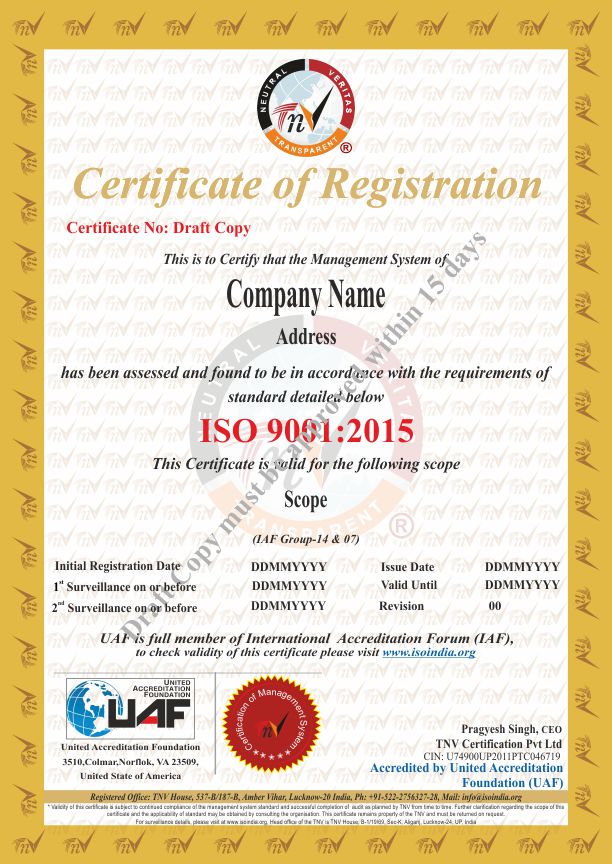
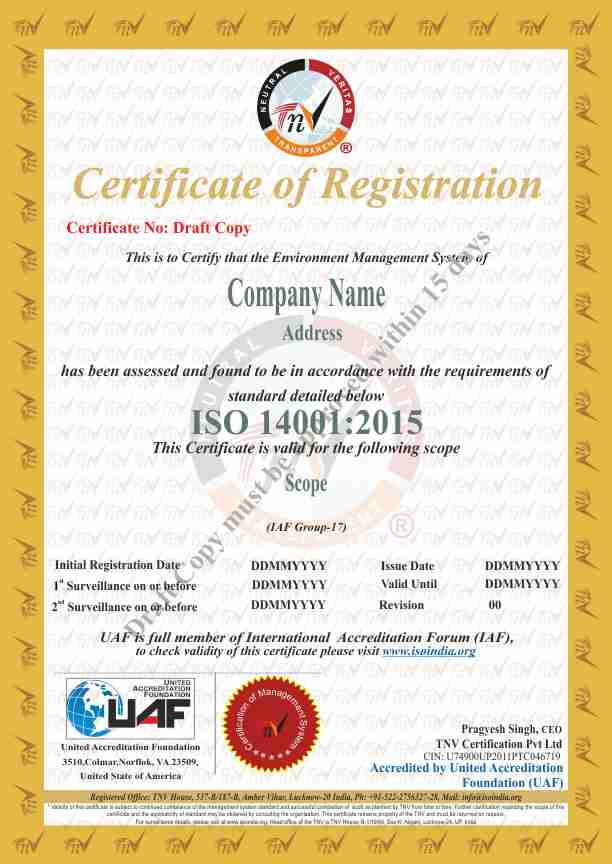
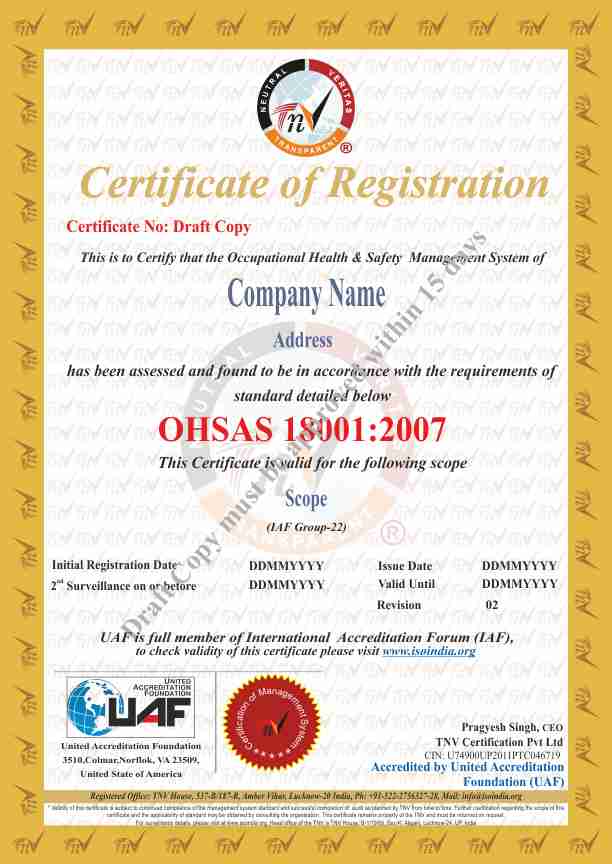
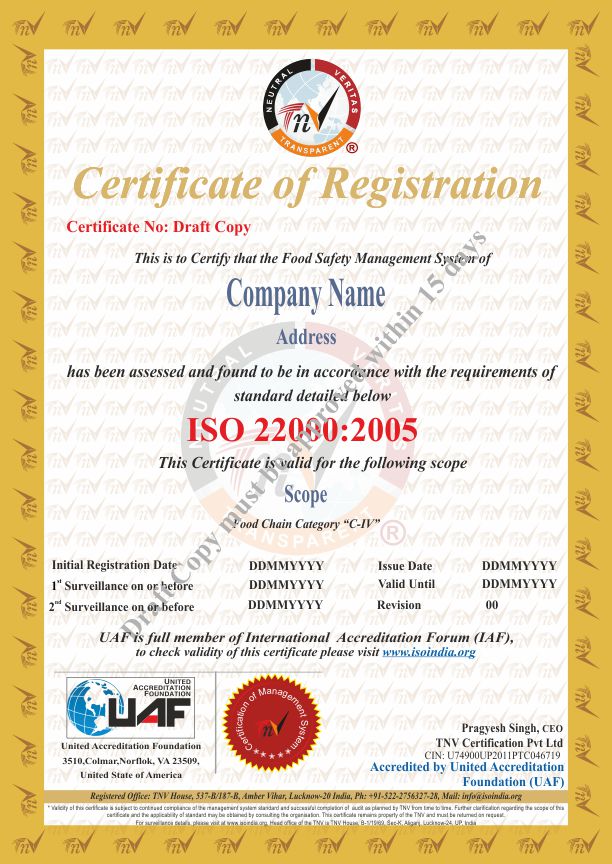
.jpg)
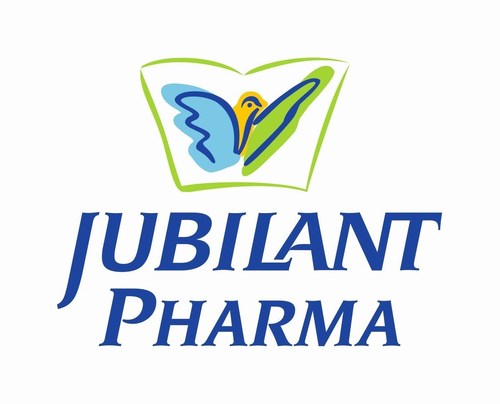 Sanjeev Sharma
Sanjeev Sharma
We are Certified by TNV since last 6 years and we are absolutely happy and satisfied with the systematic approach of the Team. Best Wishes.
»
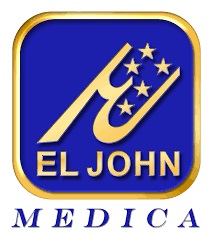 PT. Sun Health Care
PT. Sun Health Care
As always it was an excellent input that we got from TNV, looking forward to continuing a relationship with them. The assessment was very much a structured approach. Our team learned a lot Ari Rahmawati Director of PT Sun Health Care (El John Medica) »
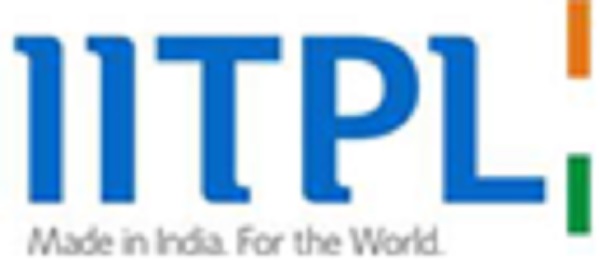 Innovation Imaging Technologies Pvt. Ltd
Innovation Imaging Technologies Pvt. Ltd
"May I take this opportunity to thank you for all your help in the arrangements and organisation for the Training of MD QMS Lead Auditor Certification Course attended. The course was very informative and structured to our requirements. I feel that the relationship that has been b »
 SSP Tech Consultancy Malaysia
SSP Tech Consultancy Malaysia
SSP Tech Consultancy Malaysia is so proud on the long lasting relationship with TNV Certification PVT LTD.
We have been working with TNV since 2010 and there were more than 80 clients have been certified in the field of ISO9001 , ISO14001, ISO45001 & ISO 13485.
We thank you For »
 Maria P. Belyanchikova
Maria P. Belyanchikova
Dear Sir,
We kindly express gratitude for your
outstanding service and long-lasting
cooperation.
Since 2014 our companies in Russia, Moscow,
and United Arad Emirates, Dubai, have several
times ordered certification, surveillance and
audit from TNV Certification Pvt LTD and »
 Unnikrishnan Narayanan Namboodiri
Unnikrishnan Narayanan Namboodiri
Dear Sir,
It is with great pleasure that we at Inspirit Safety Solutions Pvt Ltd, are conveying our gratitude and appreciation to TNV Certification Pvt Ltd for providing the best of services in the domain of
Management System trainings and certifications by accepting us as an a »

I have developed a great relationship with TNV Certification Pvt LTD.
I have undergone a few trainings with TNV training team & have
found their approach to be a highly professional & committed to
providing quality trainings & certifications. I am glad that I also have
had th »







